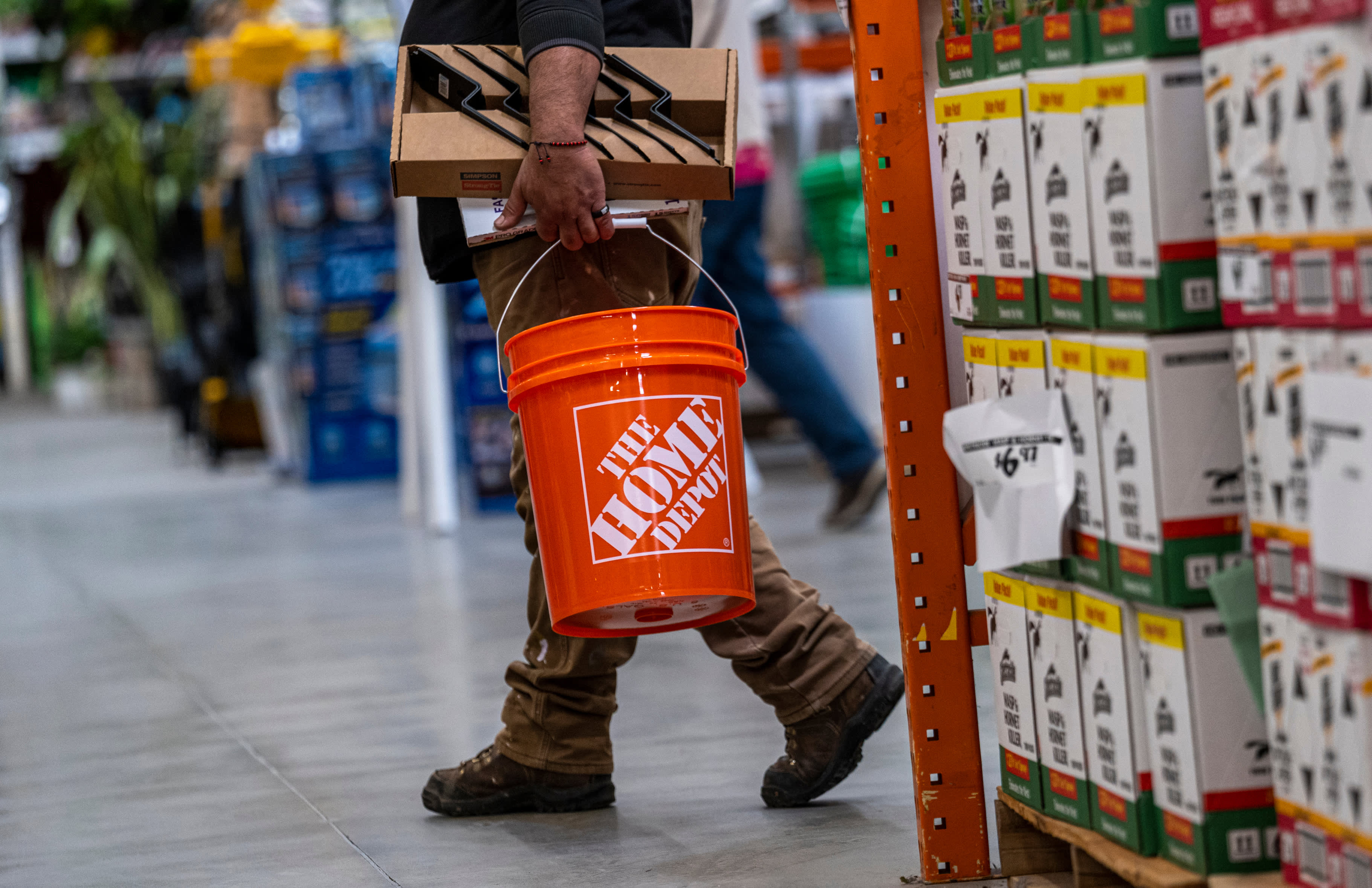Home Depot’s quarterly sales fell 3% from the same period last year, but beat Wall Street expectations as customers turned to more modest projects and home repairs.
The retailer signaled caution about the coming months, narrowing its forecast for the full year. It said it now expects sales to decline 3% to 4% from the previous year, compared to previous expectations of a decline of 2% to 5%. Home Depot expects earnings per share to decline 9% to 11%, compared to previous guidance of a decline of 7% to 13%.
In an interview with CNBC, CFO Richard McPhail said the company’s results and forecasts reflect that the year is “a period of moderation in home improvement.”
“A client who may have completely remodeled their home may opt for a partial remodel,” he said. “They’re probably not going to completely redone their kitchen. They’re probably going to just do the countertop and backsplash. And so what we’ve seen is just downsizing on projects.”
here What the retailer reported For the fiscal third quarter ended October 29, compared to what Wall Street expected, based on a survey of analysts conducted by LSEG, formerly known as Refinitiv:
- EPS: $3.81 vs. $3.76 expected
- Revenues: $37.71 billion versus $37.6 billion expected
Home Depot reported net income of $3.81 billion, or $3.81 per share, down from $4.34 billion, or $4.24 per share, the previous year. Revenues declined from $38.87 billion in the same period last year.
Comparable sales fell 3.1% year over year, a decline that wasn’t as deep as the 3.6% analysts expected, according to Factset. However, this marked the fourth straight quarter with a decline in comparable sales, an industry measure that excludes the impact of store openings, closings and renovations.
Home Depot has faced dual challenges over the past year: High mortgage rates have squeezed potential homebuyers, and high inflation makes selling big-ticket items and major renovations more difficult.
In recent quarters, clients have backed away from big-ticket projects and big-ticket items — a trend that continued last quarter, McPhail said.
The housing market has had a mixed impact on Home Depot sales, as mortgage rates have risen, home values have remained high, and supply has remained low, McPhail said. On the one hand, he said clients aren’t moving as much and taking on the projects that typically come with a new home. However, on the other hand, some have chosen to spruce up the house as they have a lower fixed rate mortgage.
“We don’t quite know how to measure this balance,” he said. “And obviously that’s something we’ll be monitoring as we move forward into next year.”
Customer transactions fell to 399.8 million from 409.8 million in the same period last year. When shopping online or in person, the average customer ticket was $89.36, about the same as the previous year.
Even before these dynamics intensified, Home Depot expected sales to decline, after many homeowners undertook kitchen remodels, painting projects and more during the COVID pandemic. McPhail also noticed a shift in budget priorities toward experiences, such as vacations and concerts.
However, he said Home Depot customers are in good shape financially.
“The consumer — especially the consumer who owns a home, which is our customer — is healthy,” he said. “They are employed. They have seen income gains and wealth gains in recent years. They have excess savings and are still involved in home improvement.”
Over the past year, the company failed to meet quarterly sales expectations twice, causing its stock to underperform.
Home Depot shares are down about 9% so far this year, lagging the S&P 500’s gain of about 15% over the same period. The company’s shares closed Monday at $288.07, bringing Home Depot’s market value to about $288 billion.
— CNBC’s Robert Home contributed to this report.

“Typical beer advocate. Future teen idol. Unapologetic tv practitioner. Music trailblazer.”







More Stories
JPMorgan expects the Fed to cut its benchmark interest rate by 100 basis points this year
NVDA Shares Drop After Earnings Beat Estimates
Shares of AI chip giant Nvidia fall despite record $30 billion in sales